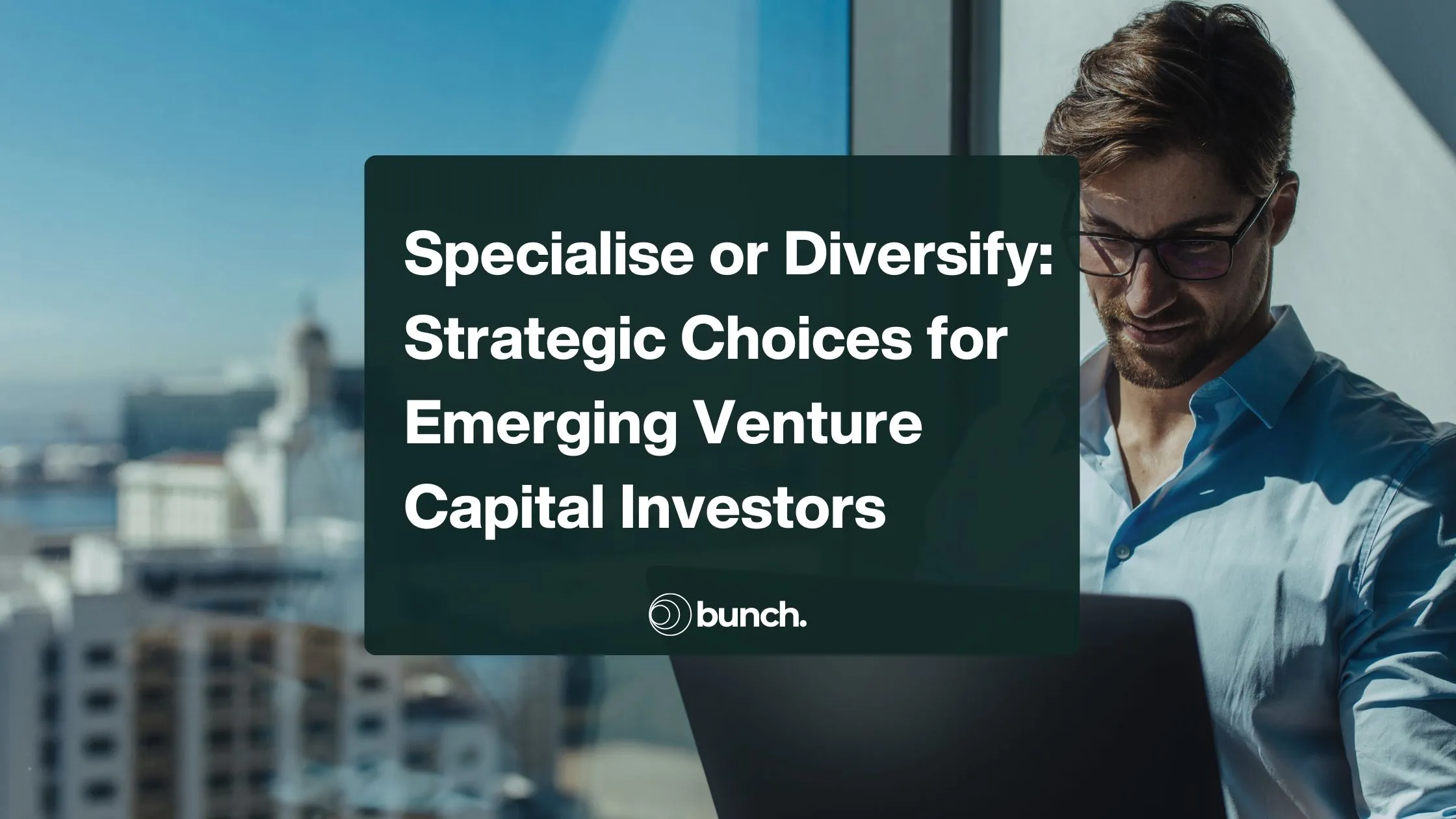Contents
The Inherent Dilemma
The question whether VC funds should follow a specialist approach or go down the generalist route is one we have been discussing with a lot of GPs over the last years and have gathered great insights. However, the choice between focusing on a specific sector or adopting a generalist approach is more than just a strategic decision—it is rooted in the philosophy of a venture capitalist. For emerging GPs, it is key to get this right from the beginning in order to successfully raise their first fund. Both routes have the potential to create outlier returns, but there are certain things that you need to keep in mind:
The Specialist Strategy
Specialised investing into a specific sector or vertical requires a deep understanding that allows the VCs to create an investing-edge thanks to in-depth expertise and strong networks.
The network piece is key - it helps with understanding the pain points & the willingness to pay for a solution, while simultaneously creating the first sales leads for a prospective portfolio company. At the same time this network edge is paramount for VCs to get access to the best and most competitive deals out there - in the end, this very often is the pillar that holds back new funds.
When it comes to early-stage venture capital, the focus often shifts from the merit of the idea to the potential of the team behind it. Experienced VCs understand that a great team can pivot and evolve ideas into successful businesses. However, this emphasis on team dynamics introduces a challenge for specialised VCs: The likelihood of encountering an outstanding team is reduced by their narrower focus. Specialisation, while offering deep industry insight, might limit exposure to diverse, cross-sectoral talent.
This aspect is crucial in early-stage investing, where the agility and adaptability of the team are often the key to success. Therefore, specialised VCs should still look for a large enough space in order to limit adverse selection when it comes to the founder teams.
Another issue is the question of diversification - if you invest into a specific sector, you may end up being highly reliant on industry specific trends and externalities become an even greater risk. At the same time, you might even run into the risk of backing big winners that end up competing with all other investments in your sector and portfolio, pushing you into another form of innovator’s dilemma.
The Generalist Approach
A generalist approach offers different advantages such as diversification, spreading investments across various sectors & industries.
In contrast with specialised VCs, generalist VCs, with their broader investment spectrum, are more likely to cross paths with a wide array of dynamic and promising teams. This gives them the luxury to back truly outstanding entrepreneurs chasing big visions, regardless of the sector.
However, also this approach has a few drawbacks - first of all, the manager typically does not understand the sector or industry very well (or sometimes even at all). This makes it difficult to i) differentiate versus other managers and makingnon-consensus bets and ii) to form conviction on new emerging technologies, often leading to investments in more established verticals and business models.
Additionally, as an LP behind the fund, you would not necessarily want the manager to diversify as you would want to decide on your own exposure to certain industries or sectors - you as an LP could do this yourself through investing into specialised funds or via funds of funds.
What do the Numbers say?
A comprehensive analysis from Cambridge Associates supports the superiority of specialisation in certain contexts. They note: “Investments executed by sector specialists across these four sectors returned an aggregate 2.2 times MOIC and a 23.2% gross IRR, handily outperforming generalist investments that returned an aggregate 1.9 times MOIC and a 17.5% gross IRR”.
Insights from Industry Leaders
Some may say these strategies do not have to be exclusive from one another. Successful GPs sometimes end up doing both, where they have a flagship, industry-agnostic fund, but at the same time raise specialised funds for certain industries. We have seen this happen a lot in the US, but even here in Europe VCs such as Cherry or Earlybird have raised funds focusing on specific niches.
Final Thoughts
Whether it's the focused expertise of specialised firms or the diversified approach of generalists, both strategies have their merits and challenges. As the venture capital landscape continues to evolve, so too will these approaches, each playing a crucial role in shaping the future of investments.
For emerging venture capitalists, the decision between specialisation and generalization is not just a matter of investment strategy—it's a reflection of vision and understanding of market dynamics. Whichever path you choose, make sure it’s the right one for you.
The best already build on bunch





























.webp)
.webp)
